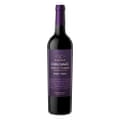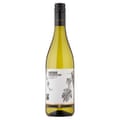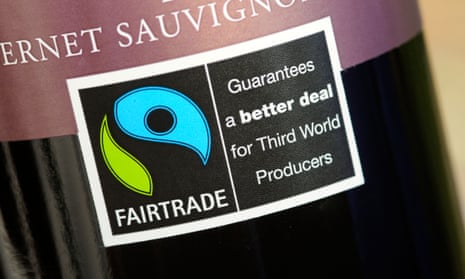Fairtrade coffee, tea, chocolate and bananas are familiar to us all – those commodities from developing countries where farmers and workers are often treated poorly by global traders. The Fairtrade label reassures us that growers receive a fair price for their crops, and that pickers and packers are paid living wages, and have their rights protected.
The Guardian’s product and service reviews are independent and are in no way influenced by any advertiser or commercial initiative. We will earn a commission from the retailer if you buy something through an affiliate link. Learn more.
The Fairtrade logo also appears on some wines, but here its use is less straightforward. Wine is made in at least 50 countries around the world, but only four subscribe to Fairtrade labelling: South Africa, Argentina, Chile and Lebanon. Apartheid in South Africa left a legacy of shocking conditions, low wages and inadequate housing among the black population working in the wine industry, as well as grossly unequal land distribution, and the Fairtrade stamp here guarantees decent working conditions and wages, as well as prohibiting child labour and gender discrimination. Often, the Fairtrade premium funds educational and community projects as well.
Chile and Argentina’s wine regions, meanwhile, have long histories of cooperatives, many of which are struggling to survive. Low market prices mean many small-scale farmers live in great poverty and are at the mercy of unscrupulous employers and buyers, and Fairtrade standards ensure a reasonable minimum price for grapes, as well as investment in farming practices, education and healthcare.
Lebanon has only one Fairtrade wine – Côteaux les Cèdres du Liban, from the Bekaa valley (£12 Co-Op, £15.77 Amazon, 13.5%). In a region better known for cannabis cultivation, this project encourages farmers to switch to grapes, so offering them a more sustainable and stable future.
While all this is laudable, it doesn’t tell the whole story. While brands of, say, tea or chocolate that don’t display the badge implicitly fail to meet Fairtrade standards, the same cannot be said for wine producers. Most wine-making countries have such legislation in place anyway – certainly those in the EU, the Antipodes and North America – so to suggest their wines fail to meet Fairtrade standards because they don’t wear the label is simply wrong. Similarly, there are non-Fairtrade producers in Chile, Argentina, South Africa and Lebanon that operate to standards above and beyond those required for certification.
As with all ethical labelling, Fairtrade is no indicator of quality, but Fairtrade Fortnight, which starts on 25 February, is as good a reason as any to explore new wines from the moral high ground.
Four to try for Fairtrade Fortnight

Don David Malbec
£9 Co-op, 14%.
From Argentina’s high Calchaquí Valley, meaty but not too muscly; eat with steak.

Sainsbury’s Taste the Difference Azana White Blend
£9, Sainsbury, 13.5%.
Like a tropical fruit salad with a spritz of lime; great value from this well-respected South-African producer.

Co-op Irresistible Sauvignon Blanc
£6, Co-op 12%.
Perfectly serviceable; profits go to funding local after-school clubs.

Cape Original Moscato Rosé
£4.49 Aldi, 5.5%.
Strawberries, cream and candyfloss, and only 5.5% abv; sweet, fluffy – and great with Asian spices.

Comments (…)
Sign in or create your Guardian account to join the discussion